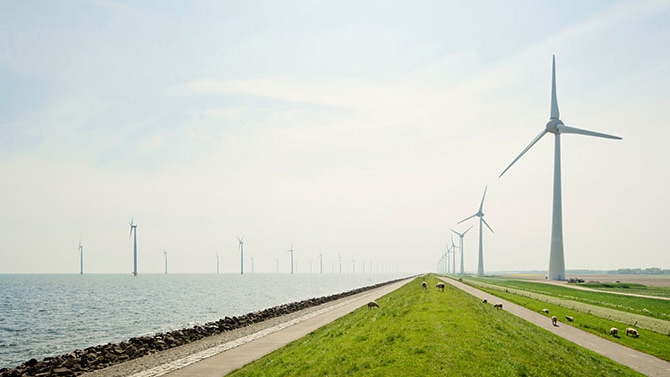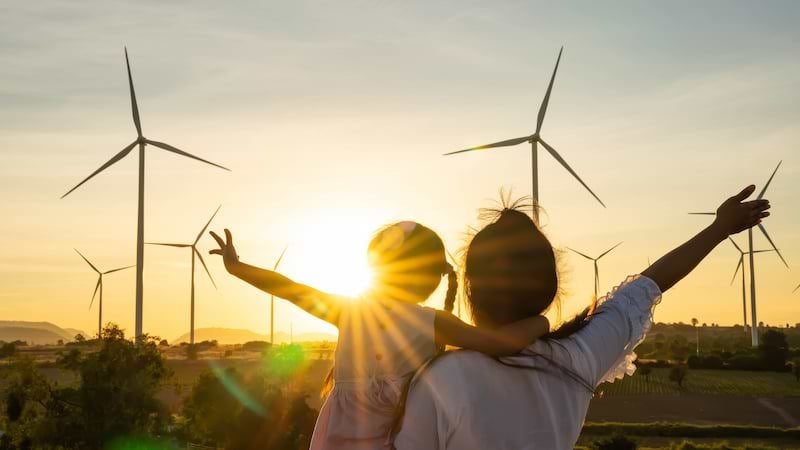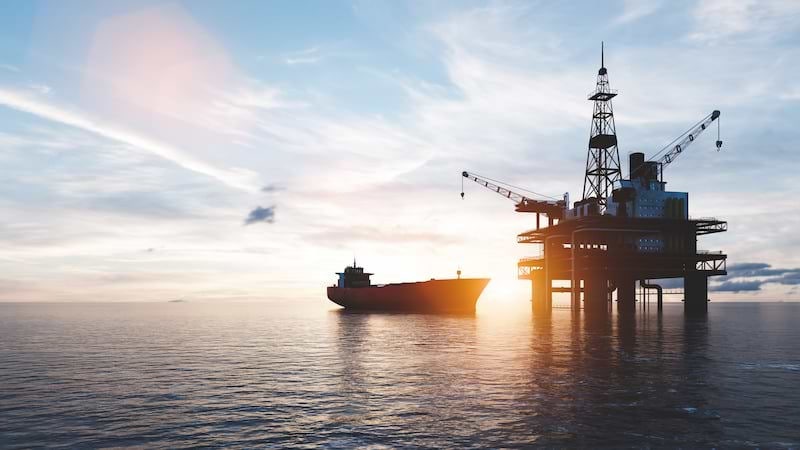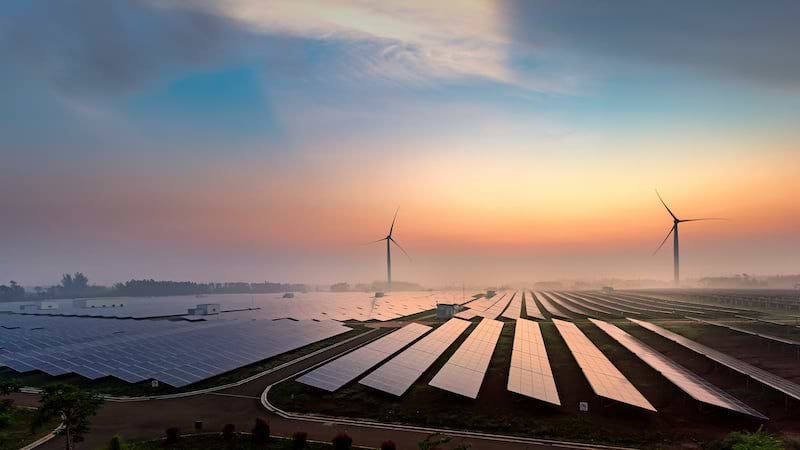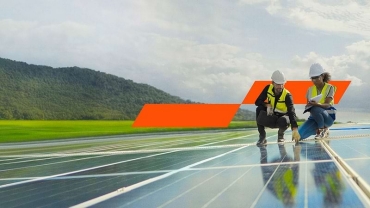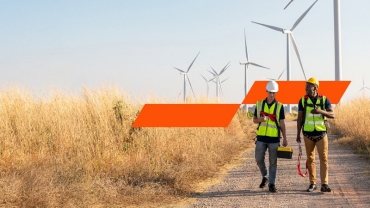
Working together for sustainability, affordability and security of supply
The energy transition and beyond
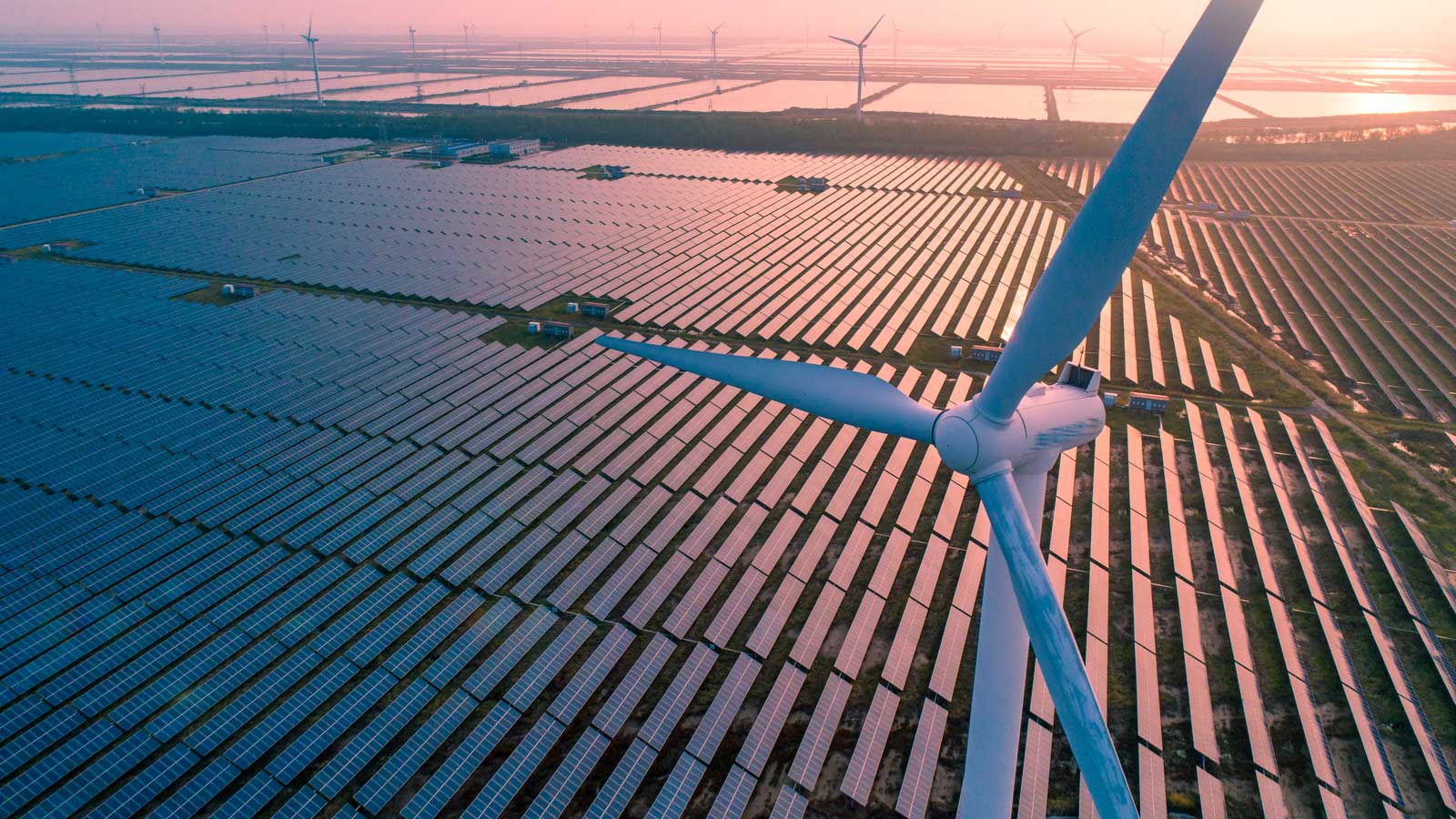
The energy transition calls for collaboration between public and private players, start-ups, scale-ups and established organisations. But how do you find the right partners to realise your plans? We have a broad view of the landscape and extensive experience with complex public and private energy projects. We connect you with relevant partners across sectors and borders. Together, we translate the objectives of the Climate Agreement into concrete steps.
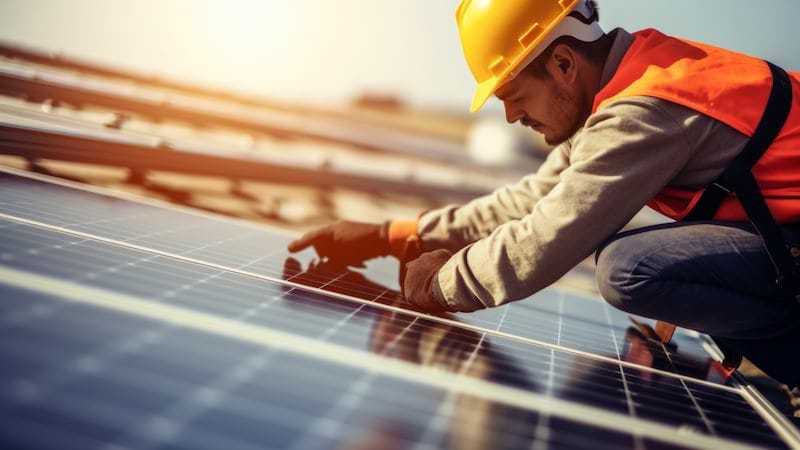

Transforming energy demand
In collaboration with the World Economic Forum International Business Council, we published our latest report, “Transforming energy demand”, outlining how actions on energy demand can be taken by all companies now, are profitable and can accelerate progress towards climate goals. Energy consumption could be reduced by up to 31% if measures are taken to reduce energy intensity by 2030. Explore the report and learn about the three levers that can help reduce energy intensity and five actions businesses can take now
Finding a balance
The time has come to look beyond the energy transition and think about how to balance this affordability, sustainability and reliability. And how we can increase scale and pace while taking into account urgent energy needs.
What the energy transition means for your company
After years of a global energy crisis, the energy supply is still very uncertain. Shortages, rising prices, overcrowded energy networks: it has a major impact on business. Yet there are also opportunities. Companies that systematically work to reduce their energy demand can increase their margins, stabilize their operations, reduce their CO2 emissions and even generate new revenues. Paul Nillesen, PwC partner and energy specialist, explains in this short video what the energy transition entails, what it means for your company and what the three ways are to deal with it.
Energietransitie uitgelegd
Interested to discuss the impact of the energy transition and beyond for your organisation?
Get in contact with us.
Collaboration in the ecosystem
The energy transition requires cooperation from public and private sector parties, start-ups, scale-ups and established names. How do you find the right partners to implement your plans? We oversee the entire field and are happy to connect you with relevant partners, across sectors and countries.Our vast experience with complex public and private (energy) projects means we will work with you to take concrete steps to achieve the goals of the climate agreement.
Role in the society
As part of this, PwC is involved in the Megamind programme, a broad public-private research programme, which is looking for ways to prevent grid overload and link supply and demand in a smart way. Here, we bring knowledge of the energy sector and data analytics to develop not only the necessary technology but also the matching regulations. Read more about our partnerships.
How PwC helps clients in the energy transition
- Boost decarbonisation at the Dutch industrial cluster
- The return on investment in energy transition
- Development of off- and onshore wind farms
- Bottlenecks in charging infrastructure for e-bus transport
- Tax advice on making Dutch carrier more sustainable
Boost decarbonisation at the Dutch industrial cluster
A commercial carrier in the Netherlands has the ambition to be completely emission-free by 2050. To achieve this, the customer's entire fleet must be electrified. Since the (purchase) costs of means of transport with electric engines are considerably higher than means of transport with a conventional combustion engine, it was important for the carrier to gain insight into the possibilities surrounding tax facilities and subsidies for electric transport. PwC has investigated which tax facilities and subsidies are available for the client's investments. An optimal selection was then made of these options and PwC started the application process. During this process, there were various consultations with the Netherlands Enterprise Agency. As a result, the application of various tax facilities and subsidies has been allocated, which has reduced the investment costs for the electrification of the carrier's fleet by approximately 10%.
The return on investment in energy transition
A partnership of provinces, municipalities and industry has asked us to develop their plans for reducing local greenhouse gas emissions. For each proposed measure we made clear what would be the intended reduction, what costs are involved and what social benefits it entails. We worked with the public and private parties involved to find subsidies, guarantees and loans to finance the plans. With this approach, the province is significantly fulfilling its responsibility to contribute to the climate objectives.
Development of off- and onshore wind farms
A medium-sized municipality wants to generate 25% of its energy needs sustainably. Including a new wind farm on an existing business park. The municipality is working with a development partner on a plan which allows both residents and local businesses to participate in the project. A suitable investment model must be set up for this. In addition, the municipality wants the electricity produced to be purchased mainly by its own citizens and companies. And finally, the remaining financial return from the mills should go to a local sustainability fund. The municipality has asked PwC to assess the financial aspects of the plan drawn up by the development partner. Thanks to the knowledge we have built up in the Netherlands and Germany about the development, structuring and financing of off- and onshore wind farms, we have drawn up an extensive set of benchmark data. With this benchmark set we were able to quickly provide insight into the robustness of the development partner's business case.
Bottlenecks in charging infrastructure for e-bus transport
The energy transition has a major impact on Dutch grid operators. The Climate Agreement sets the target that all public bus transport must be zero emission by 2030. In practice, this means a major change in the required infrastructure for public bus transport. It is a major challenge for the network operator to connect all charging points for those buses to the network in a timely manner, because they often involve complex locations (such as busy station areas). This may require many different parties to be involved in the development of such a location.
In a report prepared for one of the Dutch Network Operators, PwC has mapped out the entire chain and relevant players for electric bus transport. Bottlenecks in, among other things, legislation and regulations for the timely realization of the new infrastructure by the network operator for electric public bus transport have been identified. We have also come up with solution directions to address these bottlenecks.
Tax advice on making Dutch carrier more sustainable
A commercial carrier in the Netherlands has the ambition to be completely emission-free by 2050. To achieve this, the client’s entire fleet must be electrified. Since the (purchase) costs of means of transport with electric engines are considerably higher than means of transport with a conventional combustion engine, it was important for the carrier to gain insight into the possibilities surrounding tax facilities and subsidies for electric transport. PwC has investigated which tax facilities and subsidies are available for the client's investments. An optimal selection was then made of these options and PwC started the application process. During this process, there were various consultations with the Netherlands Enterprise Agency. As a result, the application of various tax facilities and subsidies has been allocated, which has reduced the investment costs for the electrification of the carrier's fleet by approximately 10%.
Transparency through sustainability reports
Transparency around climate footprint and risks is increasingly attracting the interest of various stakeholders such as investors, customers and employees. For this, your sustainability report is the basic foundation. How do you score on key performance indicators such as carbon footprint? Customers of energy and network companies want data to track their own sustainability. New business models around, for instance, smart and electric transport or energy storage stand or fall with access to (secure) data and deployment of technology (IoT, AI, blockchain).

PwC international
The energy transition
Developing a resilient future through industrial convergence, strong alliances, greener investments and greater use of renewable energy sources will ensure radical decarbonisation. It will also create more value for people, planet and performance. It is a must for today!
The green hydrogen economy
The green hydrogen economy is an essential part of global decarbonisation. It is therefore important to understand what is needed to develop sustainable hydrogen technologies and markets.
The future of energy
Effective strategic change requires a sharp focus on the future. Whether it is the rise of circularity, the next steps for the hydrogen economy or the energy outlook for oil and gas companies. The 'taking on tomorrow' platform brings together insights into the future of energy, utilities and commodities in one place, all at your fingertips.
Contact us

Energy - Utilities - Resources Industry Leader, PwC Netherlands
Tel: +31 (0)61 003 87 14

Partner, Energy transition and sustainable energy, PwC Netherlands
Tel: +31 (0)65 160 08 61

Menno Braakenburg
Partner Strategy & Transformation, Energy & Utilities, PwC Netherlands
Tel: +31 (0)68 118 01 51













